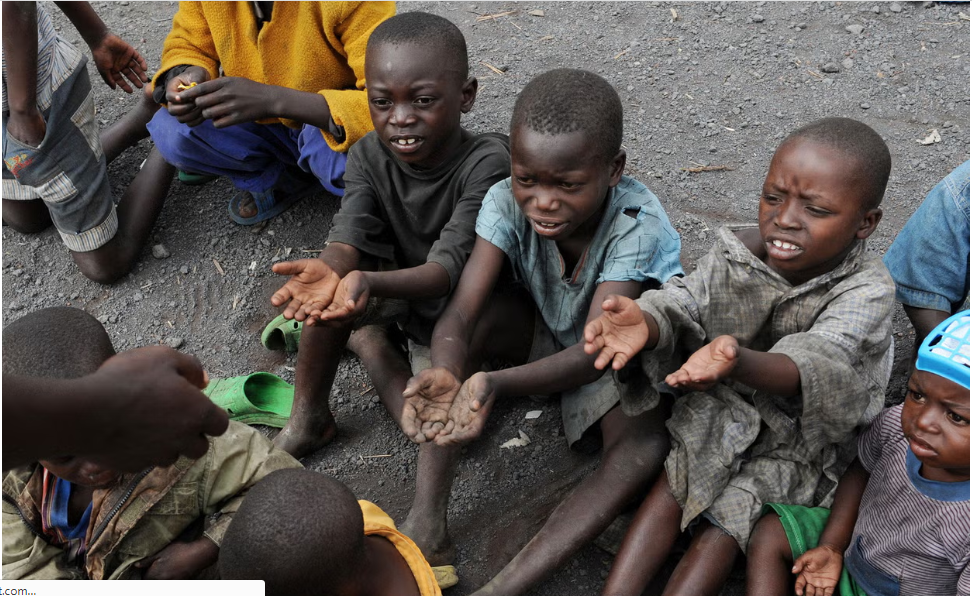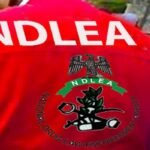By
Emmanuel Gandu
HIGHLIGHTS
• Introduction
• Use of hunger as weapon of war in history :
(1) World war I
– Effec of food shortages on German forces.
– Adolf Hitler’s Nazi Germany’s ‘Guns or Butter’ policy.
– Hunger plan Introduced in Nazi Occupied territories and the Jewish Holocaust.
(2) Italy’s Benito Mussolini’s Fascist regime use of food as weapon of war.
(3) World War II
– Napoleon’s ‘An army moves on its stomach’ philosophy.
– Liberation of Europe and Asia by the Allied forces with adequate supply of food.
(4) Nigerian Civil War and Obafemi Awolowo’s recommendation/application of food blockade ‘Starvation Policy’ on the South Eastern Region of the declared Biafran country of the ‘Rising Sun’.
(5) Syrian, Yemen, and Afghanistan wars closure of borders to cause food starvation in the opposition forces territories.
(6) Middle Belt : The case for Southern Kaduna:
• Food crops destruction, killing and genocide, hunger, burning down of villages and towns, occupation of deserted villages by invading forces.
• Effects of prolonged war in the Middle Belt
(a) Food inflation in Nigeria – the statistics
(b) Poverty
(c) Low security budget – the statistics
(7) Suggested solutions :
– Nigeria as a member and signatory to the United Nations protocols and conventions should do the needful.
– Nigerian Leadership should be made to adopt the UN Security Council Resolution 2417 of 24 May, 2018.
– International Criminal Court to prosecute the Nigerian military and civilian leadership for war crimes and genocide against the vulnerable communities.
– Aggressive public enlightenment and education of the people about basic human rights.
– Create a Southern Kaduna State.
(8) Concluding remarks.
INTRODUCTION
Hunger looms in the Middle Belt where Southern Kaduna and other agricultural communities across the region cannot access their farms for agricultural activities.
This is as a result of the genocidal herdsmen terrorists and gunmen who kill every indigenous person on sight at the farms, and in their homes.
In same manner, the surviving displaced persons who’s towns and homes have been burnt down and are taking refuge in IDP camps away from their farms.
This discourse is an attempt to bring to the fore the consequential effects of the many years of genocide, destruction, hunger, neglect, as lethal weapons of war on the Middle Belt and indeed people of Southern Kaduna.
HOW HUNGER IS USED AS WEAPON OF WAR
Hunger is said to be the most potent, deadliest, and lethal weapon used as a deliberate arsenal in the destruction of a people during conflict and war.
This inhuman act which is more of catastrophic consequences than the bullet began to gain attention from World War I, gaining notoriety during world war II. The Biafran War came, then the middle east wars including the Syrian war, to the present Boko Haram, Fulani herdsmen rampage, and now the menace of Banditry/kidnapping.
This is achieved by causing disruption and instability in food production, preservation, distribution, and the supply chain.
This war strategy forces people away from their homes, land, farms, and livestock.
The act also include blockade of supply and delivery routes, closure of land and sea borders, and airports. As a result,
hunger, starvation, famine, malnutrition, and diseases sets in, thereby causing the deaths of children, women, and men.
Then the few surviving helpless men surrender their sovereignty, franchise, heritage, pride/dignity, and land to the conquering forces of occupation.
USE OF HUNGER AS WEAPON OF WAR IN HISTORY
(1) During World War I Germany was confronted with wide – scale food shortages which led to a breakdown in the will of the German forces and the people to fight. This hunger brought about Germany’s collapse and surrender.
From the ashes of that defeat arose the notorious Adolf Hitler and his ascendency to power, and the rise of the Nazi Party. This was the period Hitler’s Nazi Germany popularised the frugal ‘Guns or Butter’ policy.
(2) The ‘Hunger Plan’ introduced in Nazi occupied countries inflicted deliberate mass starvation on the Slavic population and other territories under German occupation such as Greece, and France – including the Jewish race.
(3) In Italy, the Fascist regime of Benito Mussolini employed the politics of food as a weapon of war to subdue his enemies.
(4) During World War II Napoleon’s ‘An army moves on its stomach’ Philosophy became a watch word for the US and Canada in their production of grains in the plains of the Prairies.
(5) In World War II period, the war time leaders of the Allied forces came together to liberate the conquered peoples of Europe and Asia with adequate supply of food as a priority both during the war and the post war years.
(6) As the war in Syria, Yemen, and Afghanistan rages on, the closure of land borders, sea and air ports have led to starvation and deaths due to non delivery of food to opposition’s controlled territories.
(7) During the 30 month Nigerian Civil War of 6 July,1967 to 15 January, 1970, Obafemi Awolowo as the war time minister of finance in the Gowon administration is widely alleged to have introduced the ‘Starvation policy’, a policy of blockade of food from reaching out to the Briafran Igbo region. This brought about hunger, malnutrition, diseases, and widespread deaths of children, women, and men.
This deaths badly affected the morale of the Briafran troops – the last straw that broke the camel’s back, with defeat staring the young “Country of the Rising Sun” in the face.
The Briafran leader Col. Odumegwu Ojukwu personally hit the final nail down the Igbo coffin With his escape to Ivory Coast, leaving behind the second in command Col. Philip Effiong to surrender – a surrender that marked the eclipse of that country of the rising sun.
THE CASE FOR SOUTHERN KADUNA
The crisis of food insecurity as a result of communal, tribal, religious, farmer/herders conflict on the indigenous people of Southern Kaduna has lingered for too long. This prompted both past and present State & Federal government to set up Judicial commissions of enquiry, fact finding and recommendation committees, boundary delineation committees, peace and reconciliation commissions, white paper/ and implementation committees, compensation and resettlement committees, etc in order to solve the problems.
The immediate past state governor Mallam Nasir El Rufai even admitted paying monetary compensation to foreign Fulani herdsmen for loses to their cattle and men suffered in Southern Kaduna. However, the crisis have not abated.
Southern Kaduna have been under constant attack by Fulani herdsmen for prior to 2011 with hightened attacks in 2016/2017.
There was a resumption of hostilities prior to the 2019 elections, and the attacks had been assuming a frightening dimension.
Armed men have been having a field day hunting and killing Southern Kaduna people like rats and wild animals for a game unhindered and without repercussion.
Farm crops and livestock have been abandoned and are being vandalized.
The farming season had since commenced but farmers are killed in their farms and homes on a daily basis by the herdsmen terrorists.
War is declared on the people from all fronts, towns, and villages. The menacing herdsmen terrorists kill, burn, drive, and occupy Southern Kaduna land.
Women and men have deserted their burnt down towns and villages, and a respite seems to come from nowhere.
Hunger looms in the land with catastrophic consequences.
Whether the Southern Kaduna race will survive this war or will get to the brink of the precipice and eventually go into extinction remains to be seen.
EFFECTS OF PROLONGED WAR ON THE MIDDLE BELT PEOPLE :
*(1) Food inflation in Nigeria :*
As the food basket of Nigeria, Benue state, Southern Kaduna, Plateau state Nasarawa state, and the rest of the Middle Belt is unable to produce food from the farms due to the genocidal activities of fulani herdsmen militia. The consequences of this is the high cost of food in the country.
According to the Consumer Price Index (CPI) report by the National Bureau of Statistics (NBS),
from 2022, food prices began to experience increases faster than in any year years since 1979. This food inflation rate in Nigeria from 2022 is reflected thus :
• June 2023 = 25.25%
• August 2023 = 29.89%
• February 2024 = 37.92%
• June 2024 = 40.87%
The figures from NBS reveals that cost of food in Nigeria increased by 21.26% in April 2025 over the same month in the previous year of 2024, thereby reaching an all time high from 1996.
Still on food insecurity in Nigeria, according to the ‘Cadre Harmonise’ food security report of March 2025, nearly 31 million Nigerians across 26 states and the Federal Capital Territory are expected to face acute hunger and food insecurity by June – August 2025.
*(2) Lack of political will :*
The main factors that drives food prices higher from 2022 to 2025 is the lack of the political will by successive governments to address the genesis of the problem. This problems include the Boko Haram terrorism menace, Fulani herdsmen killings/attacks on farming communities, cost of transportation, and high energy cost.
*(3) Poverty :*
Research data shows that this unfortunate trend has pushed more than 10 million Nigerian families to the poverty line.
Advertently, these corrupt crop of leaders have actually succeeded in putting a knife on the things that held Nigeria together.
*(4) Low budgetary allocation to security :*
Due to the competing financial needs, and the myriad of humanitarian problems arising from the human crisis, governments at all levels struggle to make funds available to fight insecurity.
A look at the 2025 budgetary allocation to security by the Northern states is a far cry from the ideal.
For Lagos state which is not in any war situation to allocate far more funds to fight insecurity in the state than each of the North Geo-political regions shows poor investment in security of life, and therefore leaves much to be desired.
*2025 Security Budget :*
1. North Central = #95 billion
2. North West = #65 billion
3. North East = #55 billion
4. Lagos State = #124 billion
SUGGESTED SOLUTIONS
(1) Since the government lacks the political will to take decisive actions to protect life and property of the people, the affected communities should resort to self-defense in order not to be killed continuously like wild animals.
(2) Each state government to increase its budgetary allocation to security.
(3) The United Nations Security Council adopted the ‘Resolution 2417’ at its 8267th meeting on 24 May, 2018 to act accordingly to save vulnerable populations where hunger is used as a weapon of war. Nigeria should adhere to these provisions.
(4) ‘Humanitarian Appeal’, a leading UK charity organization have called on the International Criminal Court to begin arrest, prosecution, and jailing of military actors, dictatorial regimes, War Lord’s, terrorist groups, armed bandits who deliberately employ measures to starve the people to death as a weapon of war. Nigerians should cooperate in the arrest and prosecution of its leaders and citizens who are liable.
(5) Nigeria is a member of the United Nations and a signatory to her conventions and protocols. – The needful sanctions, arrests, and prosecution should be effected by appropriate agencies.
(5) The creation of a state for the Southern Kaduna people who inhabit 13 local governments, with a population of over 3 million people (2006 census : Federal Republic of Nigeria Official Gazette no. 2 vol. 96 Extraordinary) is more cogent now than ever before.
You may wish to also know that according to that 2006 census, Southern Kaduna is more populated than each of 11 states in Nigeria.
These are :
Abia – 2.8 million
Adamawa- 3.1million
Bayelsa – 1.7million
C/River – 2.8million
Ebonyi – 2.1million
Ekiti – 2.3 million
Gombe – 2.3million
Kwara – 2.3million
Nasarawa- 1.8million
Taraba – 2.2million
Yobe – 2.3million
It is interesting to know that Kachia Local government, and Zango Kataf local government each alone has a land mass that is more than some 3 states in Nigeria put together.
CONCLUSION
As highlighted above, hunger is imminent in Southern Kaduna and the entire Middle Belt communities ravaged by the menace of herdsmen terrorists, and other criminal gangs/gunmen. Though it would be easier to sit idly by and do nothing, there is no way to secure and change our society if we don’t take action.
I therefore implore you to consider contributing your quarter towards eliminating these vices that is driving Southern Kaduna and other parts of the Middle Belt to extinction.
Sharing this message may be just one means you can contribute.
Peace
*28 May every year is United Nations Hunger Day



























